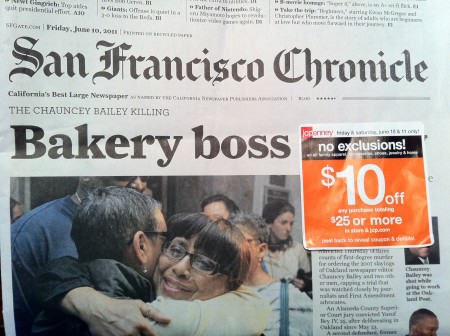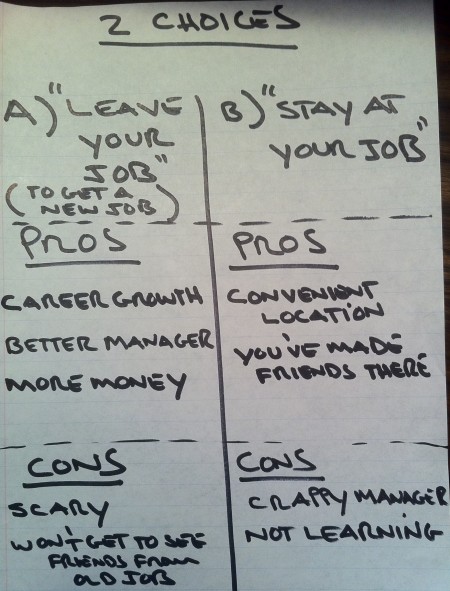57 Meditations on Kicking @$$ in Business and Life"4.8/5 stars" on Amazon
If You’re Building A Startup, Leverage The Data From 650+ Startups Who Went Before You
Tweet 1 CommentI just finished reading the 68-page Startup Genome Report (thanks to David Hassell for telling me about it).
The report is based on data collected from 650+ Web startups and is a must-read for anyone working on starting an Internet business.
Here are some highlights to give you a taste:
The six key stages Internet startups typically go through are:
- Discovery
- Validation
- Efficiency
- Scale
- Profit Maximization
- Renewal

The Startup Genome Report has a bunch of useful data to help you prepare starting a new business.
Internet startups that don’t move through the stages above show less progress. …
1 comment so far | Continue Reading »
Saturday, June 25th, 2011
5 Tips On How I’ve Doubled My Income Every 5 Years
Tweet 4 CommentsI can’t help but feel cheesy writing the above headline — it feels like something a shuckster — trying to sell you something — would write.
But I’m not selling you anything…other than some free advice!
I know a lot of you want to increase your income over time (I do) and I recently had an “uh-huh” moment about my own personal income path.
The below graph is my income plotted over the last 20 years (you’ll notice that I don’t volunteer my actual income in the graph — that’s because it’s none of your business!).

I took my personal income and plotted it by year since I began my career; this helped me understand what causes my income to grow
Tips On Increasing Your Income
1) Plot Your Historical Income Onto A Spreadsheet
The first tip I have is that you need to plot out your past income onto a spreadsheet and chart it out (like the graph above). …
4 comments so far (is that a lot?) | Continue Reading »
Thursday, June 16th, 2011
The Wall Street Journal Outlines 5 Secrets Of The Success Of Apple Stores
Tweet CommentGreat piece in the WSJ yesterday about the secrets of Apple stores.
I found these 5 “secrets” that the WSJ uncovered most interesting:
Sales Associatates “Don’t Sell”
…sales associates are taught an unusual sales philosophy: not to sell, but rather to help customers solve problems. “Your job is to understand all of your customers’ needs—some of which they may not even realize they have,” one training manual says. To that end, employees receive no sales commissions and have no sales quotas.
Soft/Comforting Language Used
The store’s confidential training manual tells in-store technicians exactly what to say to customers it describes as emotional: “Listen and limit your responses to simple reassurances that you are doing so. ‘Uh-huh’ ‘I understand,’ etc.”
Former Geniuses say they were told to say “as it turns out” rather than “unfortunately” to sound less negative when they are unable to solve a tech problem.
Strict Rules On Performance
Apple employees who are six minutes late in their shifts three times in six months may be let go. While there are no sales quotas, employees must sell service packages with devices, according to former employees. Those who don’t sell enough are re-trained or moved to another position, depending on the store.
Back on the sales floor, new hires must shadow more experienced colleagues and aren’t allowed to interact with customers on their own until they’re deemed ready. That can be a couple of weeks or even longer.
Keith Bruce, 23, who worked at an Apple store in Virginia for three-and-a-half years until December 2009, says he was told the sales floor was a stage where he should focus on things he can do, rather than things he can’t. If a customer mispronounced an item name, he was forbidden from correcting them because that would make them feel patronized.
No comments yet | Continue Reading »
Wednesday, June 15th, 2011
The 10 Reasons Mark Zuckerberg Has A Tougher Job Than Lebron James
Tweet CommentI love basketball.
I shoot hoops a few times a week; play in a fantasy basketball league and watch local NBA game on any night of the 8 month season.
As I watched the NBA playoffs this season, I realized that as tough as it is to be a pro in the NBA, it’s tougher to be a pro in business.

Mark Zuckerberg (at G8 Summit 2011) has it tougher than Lebron James (pictured dunking the ball below)
Top 10 Reasons Why Business Is Harder Than A Pro Sport Like Basketball
1) It’s Way Harder To Keep Score (In Business)
In basketball (and most sports), there’s a score that everyone can look at it…you know exactly where you stand versus your opponent.
In business, the score is much tougher. It may be a revenue goal (which most businesses don’t keep in real-time).
And in terms of how you compare to your opponent (i.e. competitor), you have to figure out how to determine your competitor’s score (which is very difficult in many businesses).
Tip: Chunk down your goals to smaller increments so that you know where you stand without waiting too long (like I illustrate in The 10 Maniacal Steps I Take For Setting Goals.
2) Business Has Many Clocks To Look At; Sports Has Just One
In basketball, there’s always a clock ticking. You know that there’s 10:05 left in the half or 1:07 left in the game. …
No comments yet | Continue Reading »
Saturday, June 11th, 2011
Don’t Screw Up Prioritizing Your Customers Like Hearst’s San Francisco Chronicle Did To Me Yesterday
Tweet CommentI was preparing my Dino kale salad with hard-boiled egg yesterday morning, and did a quick scan of the cover story in the San Francisco Chronicle (owned by the mighty Hearst Corp.).
The headline read:
“Bakery boss”

The Wrong Way: The San Francisco Chronicle prioritized their advertiser J.C. Penney over their reader when they placed a sticker ad that covered up the front-page headline
I didn’t get it: why would the Chronicle run a headline that simply said “Bakery boss”?
It had a picture below it of two people hugging…I was still confused.
Did a local baker get promoted to “boss” and that somehow was newsorthy?
I’m a former journalist and the first rule of headlines is that it should be compelling enough to make the reader want to read on.
Then I noticed that there was a sticker on the paper and maybe that was hiding something. …
No comments yet | Continue Reading »
Saturday, June 4th, 2011
4 Simple Tips To Help You Make Tough (“50-50”) Decisions
Tweet 1 CommentI wrote about the Win-Win Exercise earlier today and it reminded me that I have three other decision-making tips I use on a regular basis.
These are techniques I use when there’s a real close call (“50-50” so to speak) to make; they are often the most important decisions you’ll make.
So I’m putting all four decision-making tips here for easy access…plus I also remembered that I have this really cool illustration (below) that my nephew did for the topic!

My nephew drew this awesome image of a person having a tough time making a decision. I think it might be a combination of me and my dad!
4 Tips To Help You Make Tough Decisions
1) Decide Based On The Tougher Choice
If it’s a really tough decision on whether to take action or not take action, it is often the tougher decision that turns out to be the right one. …
1 comment so far | Continue Reading »
Saturday, June 4th, 2011
How To Get A “Win-Win” Result From A Tough “50/50” Decision
Tweet CommentA family friend asked for career advice the other day — he was trying to make a decision between finding a new job or staying put at his current job.
He was torn — almost manic — about which way to go…so I busted out the “Win-Win” exercise inspired by Yogi/Life Coach Terry.
I like using the “Win-Win Exercise” for making tough decisions — when the choice seems to be close to 50/50 — because you can literally get the best of both worlds…a true “win-win.”
Here we go!
The 5 Steps Of The “50-50″/”Win-Win” Exercise

This Decision-Making exercise is easy: list off the pros and cons of your two choices (e.g. my friend is deciding between leaving his job or staying at his job.). And then there's a cool twist below!
